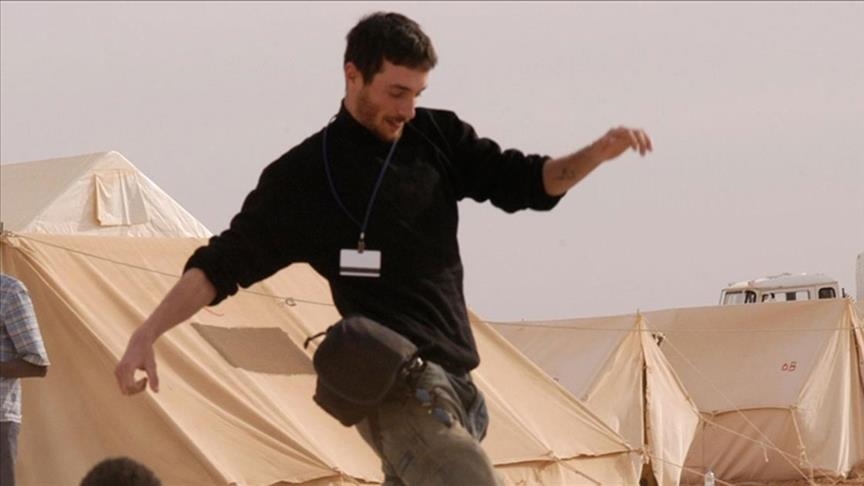ISTANBUL
The father of Tom Hurndall, a British peace activist and photojournalist who was shot dead by Israel army in Gaza in 2003, believes Western governments and media are “complicit” in the “deliberate killing” of civilians by the Israel army.
Speaking to Anadolu, Anthony Hurndall evaluated the attacks by the Israeli army targeting civilians and journalists indiscriminately in Gaza since Oct. 7, as well as the stance of governments across the world and international organizations against these attacks.
Hurndall said his son was shot in the head by the Israel army “while rescuing children from IDF (Israeli Army) sniper fire.”
“In Tom’s specific case, after they had removed bullet fragments from his brain, evident in medical scans taken in Gaza, the Israeli medical staff at Soroka Hospital sought to suggest he was injured by a blunt instrument, ‘perhaps a baseball bat’. The evidence of illegal fragmentation ammunition had been removed.”
“Only when confronted with irrefutable evidence, and subjected to the unrelenting pressure of the UK Government and press, did they concede and accept responsibility,” he added.
“Unfortunately, Palestinian civilians do not have the resources or support to protect themselves in this way. Western governments and media appear too willing to accept Israeli accounts and narratives and repeat them. In doing so they actively encourage the killing of women and children, and are, in my view, themselves complicit in, or at least condoning, the deliberate killing of civilians and war crimes,” Hurndall said.
He said that the main purpose of Israel’s indiscriminate attacks was to punish the Palestinian people and to occupy Gaza.
‘Collective punishment’
The Israeli army “appears to be systematically destroying civilian neighborhoods, and essential infrastructure, including water and sewage treatment plants. They are doing this as they have done previously, but less obviously, with their embargoes, to undermine or destroy the viability and economy of Gaza, and its services, and erode the living standards, and the livelihoods of Palestinians,” he said.
“The purpose of this is unclear and it seems to be a form of collective punishment of those in Gaza and to be cruel and inhuman. Also worrying is the possibility that they plan, as they have done with the West Bank, to occupy and then build settlements in Gaza in further breach of international law,” he added.
Referring to the international sanctions imposed on Moscow due to Russia’s war against Ukraine, Hurndall said: “Criticism has been made of Hamas for their attack of 7 October, but while this was barbarous, it needs to be compared with the killings and wounding of civilians by Israelis in far larger numbers, over previous decades. It should be borne in mind that over 4,000 Palestinian civilians were killed since 2008, and the number killed since October 7 is approaching twice the number of Ukrainian civilians killed by Russia in the whole of the Ukrainian war. These are figures taken from UN sources.”
Hurndall, stating that he used to identify himself as a supporter of Israel, emphasized that he reached a point of questioning his support for Israel in the face of the long-standing embargo in Gaza, ongoing injustices, and events after Oct. 7.
“The narrative portrayed by media and Western governments appears one-sided and to ignore the facts. I have over the years found myself questioning my own support for Israel, and find myself increasingly appalled by the treatment of Palestinians, and of the West Bank and Gaza, and by the failure of those in the West to question this.”
Hurndall concluded his words by pointing out that the Israeli-Palestinian problem could only be possible if Israel gave up its expansionist and aggressive policies.
“If it seeks instead a path of conciliation and justice, and seeks ways to co-exist peacefully with its Palestinian citizens and neighbors. I wish Israel a happy, secure and prosperous future, but it needs to abandon policies which destroy the very prospects of such a future. It will not achieve security through repression and an aggressive use of arms, but make this ever less likely,” he said.
Tackling small boat crossings by irregular migrants across the British Channel is among five priorities of the government, as more than 45,000 migrants arrived in the UK that way last year.

